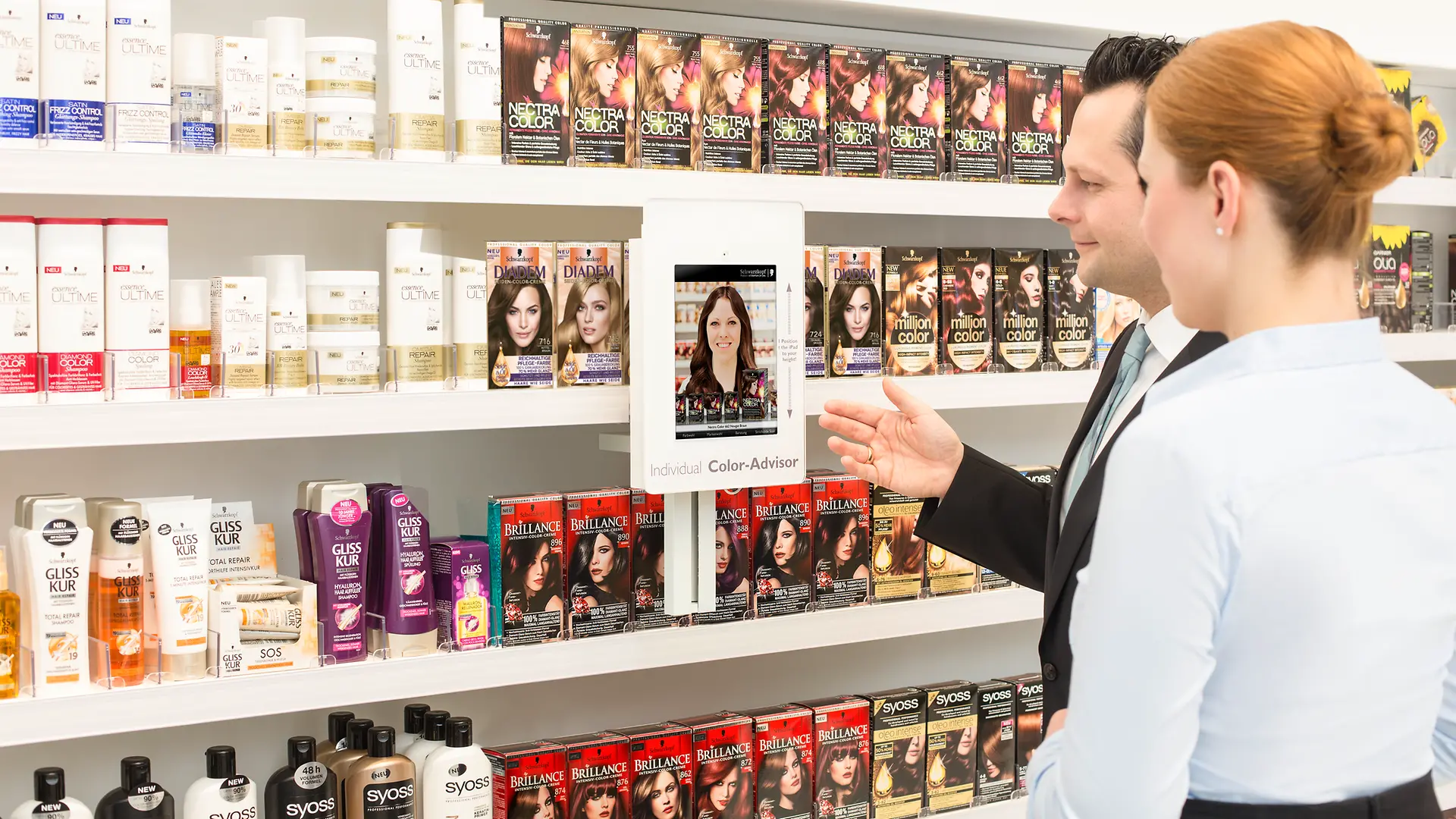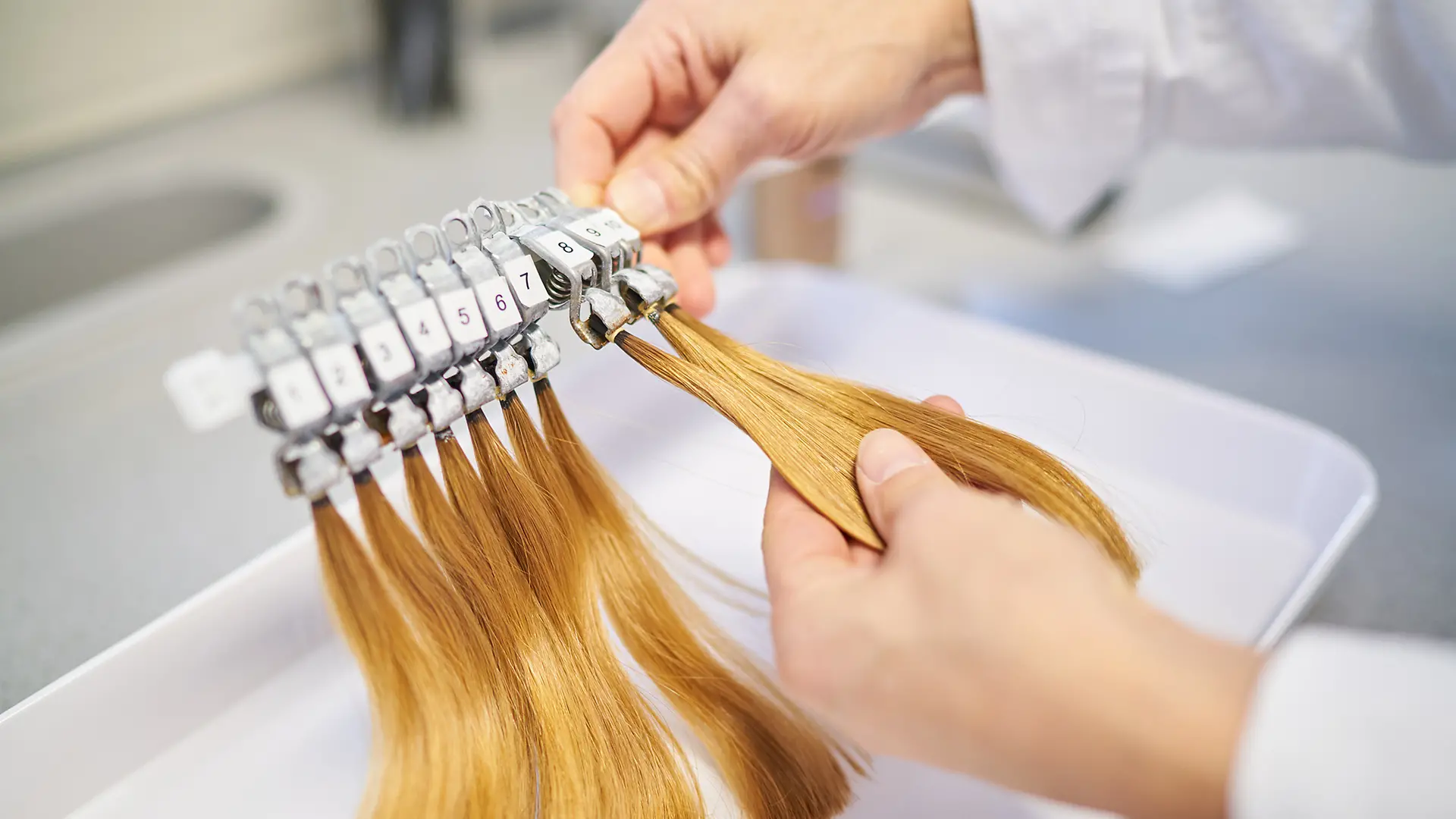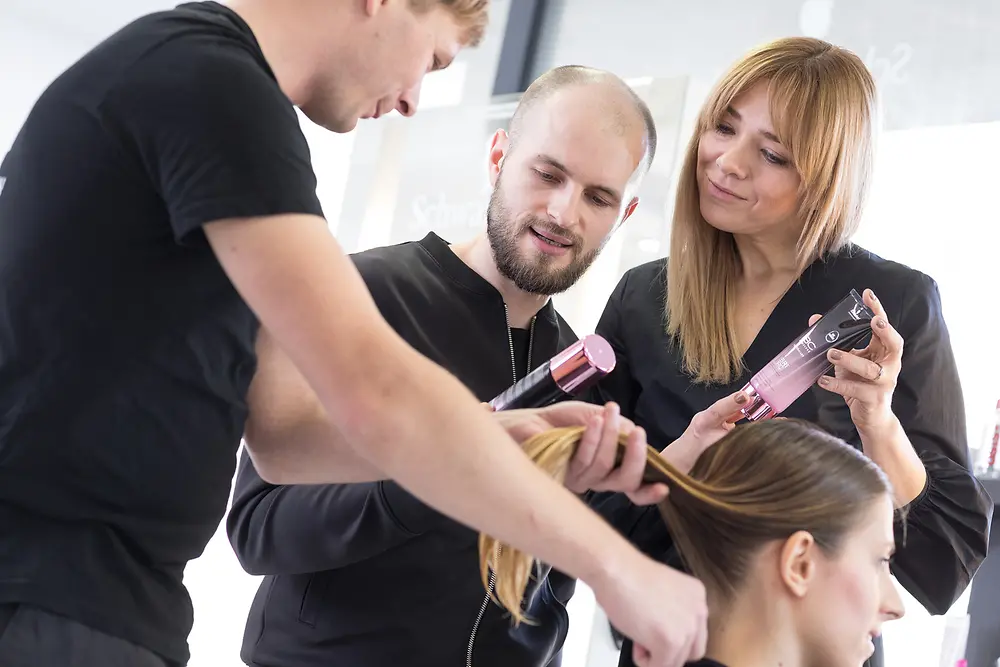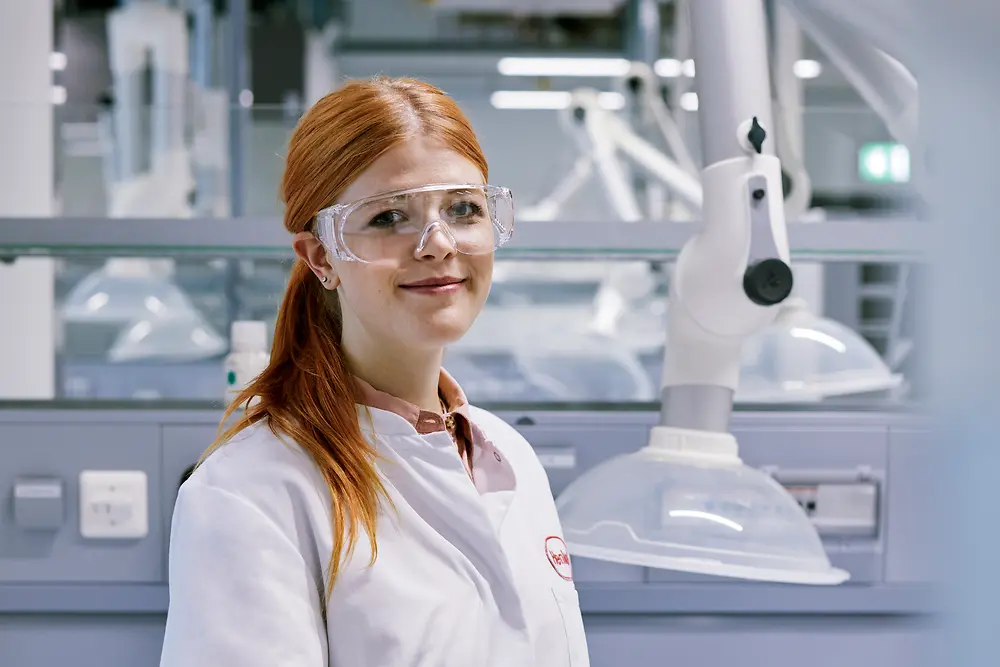Henkel’s Schwarzkopf Professional SalonLab exemplifies this shift in perspective. Hairdressers can use SalonLab’s handheld analyser, which features near-infrared and visible light sensors, to measure a client’s inner hair quality, moisture level and true hair colour. That data is then processed by an algorithm, which was developed using a digitised hair model based on thousands of reference measurements.
The results are shown on the SalonLab Consultant app, which also uses augmented reality to allow the client to see what a hair colour will look like before it is applied. The app controls the SalonLab Customizer, which can produce personalised haircare products on-site. Hundreds of combinations of ingredients and fragrances can be mixed and dispensed in small portions.
The analyser should appear in selected Schwarzkopf salons in the first half of 2019 in Europe. Bonnin says the analyser and app are designed to augment the skills and judgment of hairdressers, and that initial reactions have been positive. “We created this application and this ecosystem to empower them, not replace them,” she explains.
For Billi and Debbie Currie, who run the Billi Currie Salon in Marylebone, London, the great thing about innovations such as SalonLab is that they offer clients something that can’t be bought online. “That kills a lot of salon businesses,” says Debbie, with agreement from Billi. “You can do a consultation, offer a product, and find the client is Googling where they can buy it cheaper online.”
Like SalonLab, the Elemis SkinLab also combines personalised product recommendations with a unique experience. A consultation takes 15 minutes and includes a facial mapping service that uses clinical imaging to identify spots, UV damage, wrinkles, problem pores and areas of sensitivity. Based on the results, an Elemis skin therapist will then recommend certain products and facials, and advise the client on their skincare regime.
Noella Gabriel, co-founder of Elemis, believes today’s consumers are much more aware of skincare formulations and how modern living affects their skin, which means there’s no room for gimmicks. “You’ve got to provide something that delivers, that exceeds the client’s expectations, that excites them, and that is relevant,” she says.
SalonLab and SkinLab use a combination of human expertise and technology to deliver personalised products, but home-based tools aimed at tech-savvy Millennials also exist. For example, the Neutrogena Skin360 app and accompanying SkinScanner tool, which fits over the user’s phone, uses a combination of lights, sensors and a 30x magnification lens to capture the user’s skin condition. This data is fed back to the app and analysed, and the user is then offered suggestions for Neutrogena skincare products.
Bonnin says that many of these beauty tech applications can seem “very judgmental” as they lack the empathy that comes from having a human expert on hand to guide people through their results. For those who do want to order personalised products from the comfort of their own home, there are other options.
Skincare company Proven claims to have built the largest skincare database in the world, called the Beauty Genome Project. It used machine learning algorithms to analyse more than 8m customer reviews, 100,000 skincare products and 20,000 ingredients, as well as 4,000 peer-reviewed scientific articles – all with the aim of providing products that are highly personalised.
Co-founders Ming Zhao and Amy Yuan’s mutual dissatisfaction with current beauty care products provided the inspiration for starting the company. Zhao says she had tried “expensive ones, ones that promised miracles, ones that made the ingredients sound amazing” but that “none of them really kept their promise with regards to actual results”.
It wasn’t until she tried some personalised products made for her by facialists that she found something that worked, an experience that sowed the seed for Proven. Potential customers fill out a survey on the company’s website, answering questions about their age, ethnicity, skin type and skincare priorities. Their answers are then matched with Proven’s data, and they’re offered customised products created by a team of Stanford University scientists.













